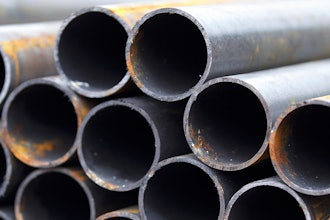FRANKFURT, Germany (AP) — The CEO of General Motors' loss-making European business abruptly stepped down on Thursday, a sign that the automaker's top management wants to speed up what has been a slow-moving restructuring plan.
Karl-Friedrich Stracke stepped down just two weeks after presenting a new plan to rebuild the struggling European Opel and Vauxhall brands and return them to profitability. Adam Opel GmbH said in a statement that he will stay with GM and take on special projects, reporting to CEO Dan Akerson.
GM Vice-Chairman Steve Girsky, the head of Opel's board of directors and a company troubleshooter, will serve as acting chief of European operations while the company searches for Stracke's replacement.
The surprise moves show that GM's upper management is growing more impatient with the slow pace of change in Europe as the economy deteriorates faster than expected, said Michael Robinet, managing director of IHS Automotive, a consulting firm near Detroit.
"Change of leadership really denotes a new direction is required, maybe a new speed at which some of the changes will occur," he said. "It also signals to labor that it's a new sheriff in town."
The U.S. automaker wants to make a profit on its European business, which includes Opel and the Vauxhall brand in Britain, despite tough competition among mass-market carmakers. Opel and Vauxhall have been a drag on the company's earnings for a dozen years, including a $256 million loss in the first quarter and $747 million last year.
Stockholders and analysts have questioned whether GM is moving fast enough to stem the losses and restructure in Europe, where GM has too many factories and workers for the number of cars it sells.
The faltering European macro economy has created a situation where plant closings and other restructuring moves may now be more palatable to unions and governments as auto companies struggle, Robinet said. "That sense of urgency needs to be conveyed to labor that this is not just something we're going to talk about every couple of months. This is job one," he said.
GM rode strong North American profits to earn $1 billion last quarter, but its profit margin was 5.8 percent, well below the 10 percent margin typical of Hyundai or Volkswagen, the top industry performers. Akerson has said he wants to raise GM's margins closer to the leaders. Profit margin is the proportion of revenue that's left after costs such as labor or raw materials.
Akerson said in a statement that the 56-year-old Stracke "worked tirelessly, under great pressure, to stabilize this business and we look forward to building on his success."
The Opel statement quoted Stracke as saying that Opel and Vauxhall have a bright future.
The Detroit-based automaker in the midst of a difficult effort to turn Opel and Vauxhall around. A partnership with PSA Peugeot Citroen offers a chance for cutting costs but will not show results for several years. Meanwhile, Opel is barred for now from closing plants in Germany to cut excess capacity.
Stracke's departure comes two weeks after the Opel board approved a new overhaul plan at its June 28 meeting. The company said it is looking to add new models in segments in coming model years where it currently has no offerings, seek new markets in emerging economies, and look at moving other GM production to Europe to make best use of plant capacity.
Opel has also said it was in talks to guarantee German workers jobs through 2016, after which the closure of the plant in Bochum, Germany, was widely expected. In return, workers gave up a 4.3 percent wage increase agreed to in industry-wide negotiations. German labor contracts had tied the company's hands, barring layoffs through 2014.
Bochum is an older, higher-cost, facility but factory closings are expensive and politically difficult in Germany, where severance costs can be high, worker representatives sit on company boards and unions have political clout.
The company has also agreed on a partnership with France's PSA, but that effort will take several years to bear fruit. The alliance is to focus on sharing platforms — the basic mechanical foundations — and parts modules to save costs from larger volumes, but the first common platform was not expected to launch before 2016. The struggling French carmaker, facing diving sales in crisis-hit southern Europe, announced a drastic cost-cutting plan Thursday to slash 8,000 jobs in France and close a major factory north of Paris.






















